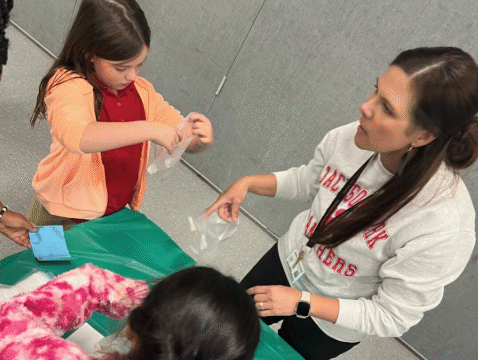Bad habits can be hard to break, but with the latest advancements in neuroscience, psychology, and technology, changing behaviors has never been easier. In 2025,
cutting-edge strategies help individuals overcome unhealthy patterns and adopt a more positive, fulfilling lifestyle.
Here are the best science-backed methods to break bad habits and build lasting change.
1. AI-Powered Habit Coaching
AI-driven apps now provide personalized habit-tracking, real-time reminders, and adaptive coaching based on behavior patterns. These tools analyze user data to offer custom strategies for breaking negative habits and reinforcing positive ones.
2. Neuroscience-Based Habit Rewiring
Advancements in brain science have revealed that habits are deeply ingrained neural pathways. New techniques such as neurofeedback and cognitive behavioral training help rewire the brain for better decision-making and self-control.
3. Micro-Habit Stacking
Breaking habits is easier when replacing them with small, incremental changes. Micro-habit stacking encourages linking a new, positive habit to an existing routine, making transitions seamless and sustainable.
4. Wearable Technology for Habit Monitoring
Smart wearables now track behavioral patterns, providing real-time data on triggers and progress. Devices can send alerts for unhealthy behaviors, like excessive screen time or poor posture, helping users stay accountable.
5. Virtual Reality (VR) Behavior Therapy
VR therapy allows individuals to experience simulated environments that train the brain to resist temptations. This method is especially effective for breaking habits like smoking, emotional eating, and procrastination.
6. Dopamine Regulation Techniques
Many bad habits are driven by dopamine-driven reward cycles. New mindfulness practices, guided meditation, and controlled fasting techniques help reset dopamine levels, reducing dependency on negative behaviors like excessive social media use or junk food cravings.
7. Genetic and Hormonal Insights for Personalized Change
Breakthroughs in genetics and endocrinology now allow individuals to analyze their genetic predispositions and hormonal influences on behavior, enabling more effective habit-breaking strategies.
8. Community Accountability Platforms
Social motivation remains a key factor in overcoming bad habits. AI-driven platforms connect individuals with accountability partners, providing real-time support and motivation through group challenges and rewards.
9. Sleep Optimization for Willpower Enhancement
Studies show that poor sleep weakens self-control, making it harder to resist bad habits. Advanced sleep-tracking devices and smart lighting systems are now used to optimize sleep patterns, boosting willpower and cognitive function.
10. Biofeedback and Stress Management Tools
Stress often fuels bad habits. Biofeedback devices now help regulate stress responses, teaching users to control their emotions and impulses more effectively. Techniques like deep breathing and guided relaxation sessions improve resilience against cravings and compulsive behaviors.
Final Thoughts
With the scientific breakthroughs of 2025, breaking bad habits and adopting a healthier lifestyle has never been more achievable. By leveraging AI, neuroscience, and behavioral psychology, individuals can create lasting change and build a better future.
Which habit will you break first?





